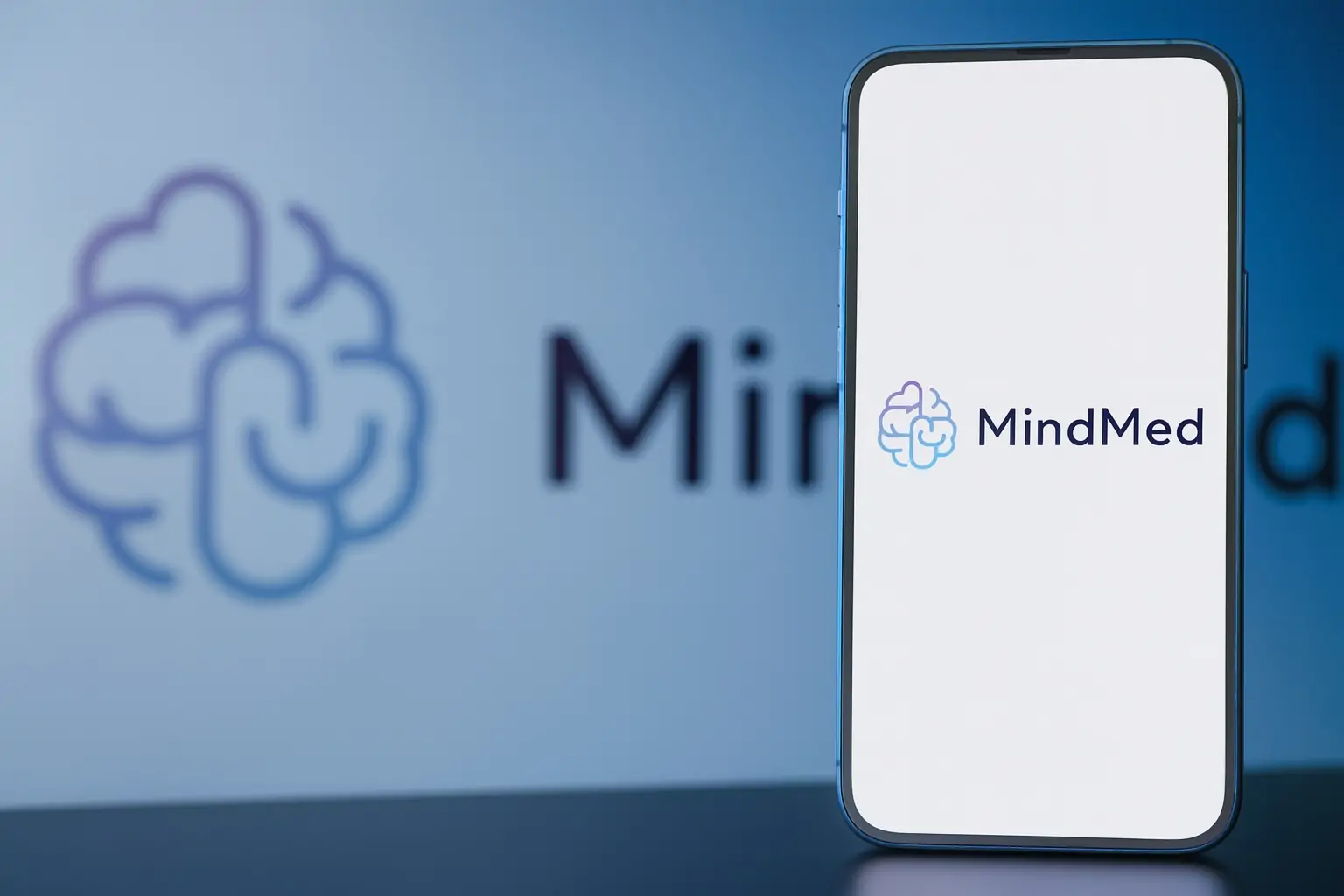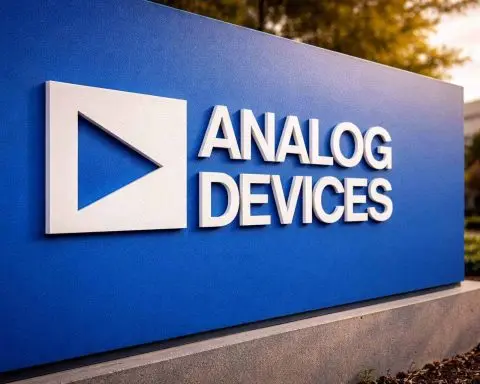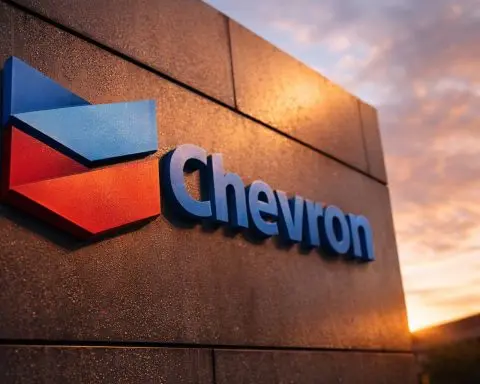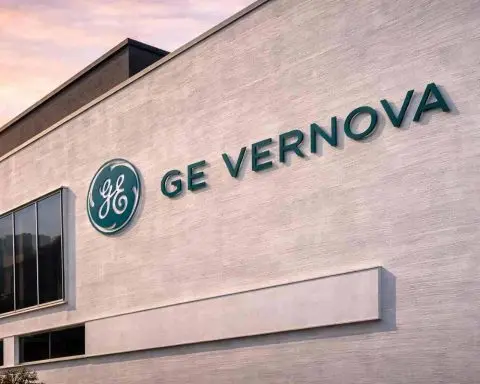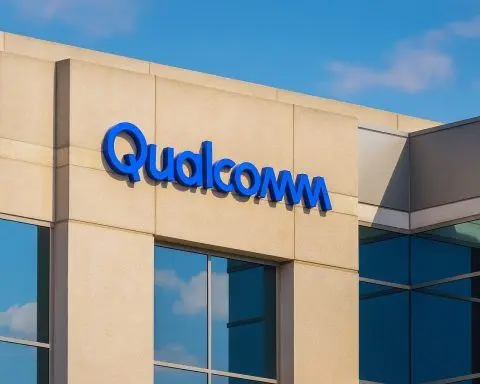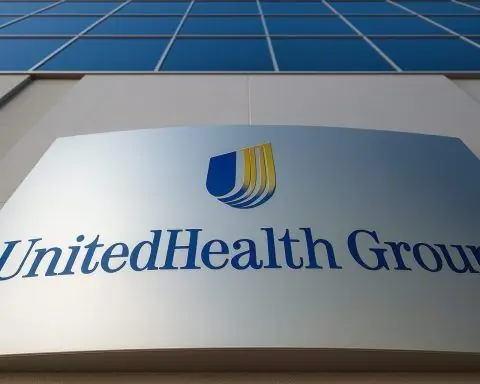- Stock Hits New High: Shares of Mind Medicine (MindMed) Inc. (NASDAQ: MNMD) have been on a tear, reaching a new 52-week high of $13.09 this week and closing around $12.58marketbeat.com. The stock jumped nearly 13% in one day in late Septemberallpennystocks.com and is up about 68% year-to-datefinance.yahoo.com, reflecting surging investor optimism around the company.
- Positive Trial & FDA Blessing: MindMed’s lead drug MM120 – a proprietary LSD-based therapy – posted groundbreaking Phase 2b results for generalized anxiety disorder (GAD)stocktitan.net. A single 100 µg dose of MM120 led to rapid, robust anxiety relief sustained for 12 weeks, with 48% of patients in remission and 65% respondingpharmavoice.com. The FDA granted Breakthrough Therapy designation to MM120 for GAD, recognizing its potential to address a huge unmet needpharmavoice.com. MindMed has already launched three Phase 3 trials of MM120 in anxiety and depression, aiming for pivotal data readouts in 2026benzinga.com.
- Analysts Bullish – Big Upside Seen: Wall Street is increasingly bullish. Needham & Co. just initiated coverage with a Buy rating and a $28 price target, calling MM120 “the most advanced psychedelic in development for GAD” with significantly better efficacy and durability than current treatmentsbenzinga.com. Overall, analysts rate MindMed a Moderate Buy with an average price target near $27.83, more than double the recent share pricemarketbeat.com. High institutional ownership of MNMD also “speaks for itself” as the stock continues to impressfinance.yahoo.com.
- Pipeline and Cash Runway: Beyond MM120, MindMed is expanding its pipeline. It’s developing MM402 (an R–MDMA compound derived from ecstasy) in a Phase 1 trial for autism spectrum disorderstockanalysis.com. The company is well-funded, with cash and investments of $237.9 million (as of mid-2025) – enough to fund operations into 2027benzinga.com. This strong cash position limits the need for dilutive financing and supports ongoing R&D and potential partnerships.
- Psychedelic Biotech Boom: MindMed’s rise comes amid renewed momentum in the psychedelic medicine sector. Major players are validating the space – for example, pharma giant AbbVie struck a $1.2 billion deal in August to acquire a psychedelic-based depression therapyfirstwordpharma.com. Competitors have seen mixed fortunes: Compass Pathways hit a Phase 3 success with psilocybin for depressionpharmavoice.com, while another company’s MDMA-based PTSD drug was rejected by the FDA due to trial design issuespharmavoice.compharmavoice.com. Experts now view MindMed as a front-runner, thanks to its rigorous trial design and promising datapharmavoice.compharmavoice.com.
Stock Soars to 52-Week High on Investor Hype
MindMed’s stock has been on fire in recent weeks, vastly outperforming the broader market. Shares rocketed to a 52-week high of $13.09 on October 14, closing that day at $12.58 with unusually heavy trading volumemarketbeat.com. Just a couple of weeks earlier, on September 29, MNMD spiked 12.8% in a single session, hitting ~$12.04 by day’s endallpennystocks.com. These sharp gains have propelled MindMed to roughly +68% year-to-date returnsfinance.yahoo.com, a remarkable run driven by excitement over its clinical progress.
Investor sentiment is clearly bullish. The stock’s rally has been supported by positive news (detailed below) and a generally risk-on mood for biotech. Notably, MindMed boasts a large base of committed institutional investors – a Simply Wall St analysis noted the “high institutional ownership” reflects confidence as the stock surged over 25% in a weekfinance.yahoo.com. Many retail traders have also jumped in, encouraged by momentum and the promise of psychedelic therapies to revolutionize mental health treatment.
Analysts are encouraging the optimism. According to MarketBeat, MindMed now has seven analysts covering it, with 6 Buy ratings vs. just 1 Sell, giving a consensus Moderate Buy viewmarketbeat.com. The average price target is ~$27.83, implying nearly 120% upside from current levelsmarketbeat.commarketbeat.com. In other words, Wall Street sees significant room for the stock to run further if the company executes well. “One investment analyst has rated the stock with a Strong Buy, six have issued a Buy rating and one has given a Sell rating… with an average target price of $27.83,” MarketBeat reportsmarketbeat.com.
It’s worth noting that volatility is high – common for a clinical-stage biotech. After peaking mid-week, shares pulled back slightly (they were down about 4% intraday on Oct. 16aaii.com, likely on profit-taking). And insiders have taken some profits too; MindMed’s CEO Robert Barrow recently sold ~25,800 shares around $9.77 in late Septembermarketbeat.commarketbeat.com. Still, overall sentiment remains positive as the company heads toward major catalysts in 2026.
Breakthrough LSD Therapy Making Waves in Trials
At the heart of MindMed’s surge is growing excitement about MM120, its lead drug candidate. MM120 is a pharmaceutically optimized form of LSD (lysergide D-tartrate) designed to treat anxiety disorders. While LSD is famous as a psychedelic drug, MindMed is repurposing it into a medical therapy – and early results suggest it could be a game-changer for Generalized Anxiety Disorder.
GAD is a huge market with unmet needs: it affects roughly 26 million U.S. adults and has seen no new FDA-approved medications in almost 20 yearspharmavoice.com. Current anti-anxiety drugs (like SSRIs or benzodiazepines) fail about half of patients or cause undesirable side effectspharmavoice.com. MindMed aims to “turn the tide” in GAD treatmentpharmavoice.com with a novel approach: a psychedelic-assisted therapy that might deliver long-lasting relief after just a single dose.
Phase 2b trial results for MM120 were extremely promising. In a placebo-controlled study of 198 adults with moderate-to-severe GAD, a one-time oral dose of MM120 (100 μg) led to rapid and durable anxiety reduction. By Week 4 (the primary endpoint), patients on MM120 saw significantly greater improvement on the Hamilton Anxiety Rating Scale (HAM-A) than those on placeboir.mindmed.coir.mindmed.co. Even more impressively, at Week 12 (nearly 3 months after that single dose), anxiety scores remained markedly improved: MM120 patients had a 7.7-point greater reduction in HAM-A vs. placeboir.mindmed.co. In clinical terms, 48% of those treated with MM120 went into remission from GAD by week 12, compared to far fewer on placebopharmavoice.com. About 65% of MM120 patients achieved at least a 50% reduction in anxiety symptoms, and these gains were “solidly sustained for 12 weeks after a single dose,” according to trial investigator Dr. David Feifelir.mindmed.co.
“That MM120 exhibited rapid and robust efficacy, solidly sustained for 12 weeks after a single dose, is truly remarkable,” said Dr. Feifel, a psychiatry professor and trial investigatorir.mindmed.co. “These results suggest the potential MM120 has in the treatment of anxiety, and those of us who struggle every day to alleviate anxiety in our patients look forward to seeing results from future Phase 3 trials.”
These eye-opening data were published in the Journal of the American Medical Association (JAMA) in September, lending peer-reviewed credibilitypharmavoice.com. Off the back of the Phase 2 success, the FDA granted MindMed’s MM120 a coveted Breakthrough Therapy Designation for GADpharmavoice.com. This designation is given to experimental treatments that show substantial improvement over existing options, and it fast-tracks the drug’s development and review process. MindMed’s CEO Robert Barrow hailed the FDA’s decision, calling it “further validation of the important potential role this treatment can play” for anxious patientsir.mindmed.co.
Buoyed by the green light, MindMed wasted no time moving to Phase 3. The company launched three Phase 3 trials of MM120 (using an orally disintegrating tablet formulation) across its target indicationsbenzinga.com. Two large trials – dubbed Voyage and Panorama – are enrolling GAD patients, while a third trial (Emerge) is in major depressive disorder (MDD)benzinga.com. According to the company, enrollment is on track and top-line results are expected in 2026: Voyage data in the first half of 2026, Panorama in the second half, and initial readout from Emerge (12-week part) also in late 2026benzinga.com. In short, 2026 is shaping up as a pivotal year for MindMed’s LSD program, potentially setting the stage for an FDA review if outcomes are positive. Needham analysts in fact noted that “2026 should be a strong catalyst year for MindMed” given these scheduled trial milestonesbenzinga.com.
MindMed’s approach with MM120 has drawn attention for its rigor and differentiation. Notably, the Phase 2 trial administered LSD without any accompanying psychotherapy, yet still saw patients improve – indicating the drug’s inherent effect rather than a placebo or therapy effectpharmavoice.com. The trial also used a low “sub-therapeutic” dose group to maintain blinding (so participants wouldn’t immediately know if they got a trip-inducing dose or not), aligning with FDA recommendations for psychedelic trialspharmavoice.com. These design choices were very deliberate. They contrast with some competitors who combined psychedelic drugs with therapy or failed to adequately blind studies – issues that have drawn FDA criticism. In fact, when another company (Lykos Therapeutics) had its MDMA-like PTSD drug rejected by the FDA last year over trial design concerns, MindMed’s team took it as validation of their own methods.
“Everything FDA said they needed to see from Lykos are things we baked into our program from the outset… Lykos’ difficulties have been nothing but validation for how we’re doing what we’re trying to do,” said Dr. Daniel Karlin, MindMed’s Chief Medical Officerpharmavoice.compharmavoice.com. In a PharmaVoice interview, Karlin explained that MindMed learned from others’ setbacks – using proper control doses and focusing on drug effect alone – to ensure their data would be clear and compelling for regulatorspharmavoice.compharmavoice.com. This meticulous approach could give MindMed an edge as it “barrels towards the finish line with a treatment based on LSD,” the PharmaVoice article observedpharmavoice.com.
Pipeline Beyond LSD: MDMA-Derivative & Strong Cash Position
While MM120 for anxiety and depression is MindMed’s flagship, the company is not a one-trick pony. It has a second clinical candidate, MM402, aiming at a very different disorder: autism spectrum disorder (ASD). MM402 is an R-enantiomer of MDMA (the active ingredient in the party drug ecstasy) – essentially a refined version of MDMA designed for medical usestockanalysis.com. Preclinical research suggests R-MDMA might retain therapeutic benefits (such as improving social functioning) with potentially fewer stimulant side effects than regular MDMA. MindMed has advanced MM402 into a Phase 1 trial in healthy volunteers to evaluate safety and basic effectsstockanalysis.com. The ultimate goal is to see if MM402 could help treat core symptoms of autism, an area of immense need with no approved medications to improve social cognition. This program is earlier-stage, but it underscores MindMed’s strategy to build a pipeline of psychedelic-derived medicines targeting big neurological and psychiatric conditions.
MindMed has also dabbled in exploring LSD microdosing for adult ADHD in the past (a Phase 2 trial was conducted in Europe), and while that is not a current focus of its late-stage pipeline, it shows the breadth of indications the company could pursue over timestockanalysis.com. Additionally, MindMed maintains a research collaboration with the University Hospital Basel’s Liechti Lab – a renowned center for psychedelic science – which has provided it access to a trove of clinical data and expertise on LSD and other compounds. This academic partnership strengthens MindMed’s R&D capabilities, though no new collaborations or M&A deals have been announced in 2025.
Critically, MindMed is in a solid financial position to fund its ambitious clinical programs. The company reported a cash balance of about $238 million as of mid-2025benzinga.com, thanks in part to past fundraising and prudent cash management. Its quarterly R&D spending has increased (reflecting the multiple Phase 3 trials underway), but MindMed estimates its cash runway extends into 2027, at least a year beyond the expected Phase 3 data readoutsbenzinga.com. In other words, the company should have enough money to reach the finish line of its pivotal trials without needing to raise additional capital imminently. This is a big positive for investors, as it reduces dilution risk and gives MindMed strategic flexibility (they can negotiate partnerships or financing from a position of strength). It also enables the company to invest in expanding its team – for instance, MindMed recently hired Brandi Roberts, a seasoned biotech executive, as Chief Financial Officerstocktitan.net, and has been issuing stock options to attract talentstocktitan.netstocktitan.net. Having the right team and cash in the bank will be vital as MindMed moves toward commercializing its therapies in the coming years.
Experts and Analysts See Major Upside
The buzz around MindMed isn’t just coming from Reddit forums or hope; respected analysts and industry experts are voicing optimism about the company’s prospects:
- Wall Street Analysts: Needham & Company is the latest to join the bull camp on MindMed. On October 13, Needham initiated coverage with a Buy rating and a $28 price targetbenzinga.com. Analyst Ami Fadia at Needham highlighted that MM120 is “the most advanced psychedelic in development for GAD” and noted its Phase 2 data showed “significant improvement in efficacy and durability over [standard of care]” treatmentsbenzinga.com. She projected MM120 could potentially exceed $1.5 billion in annual U.S. sales by 2035 if it reaches the marketbenzinga.com. Needham also pointed out MindMed is targeting two large indications (anxiety and depression) that together represent a $12+ billion addressable market – implying a huge revenue opportunity if trials succeedbenzinga.com. Other firms have likewise been positive: Oppenheimer in August gave an Outperform rating and $25 target, and Chardan Capital in early October reiterated a Buy with a $20 targetmarketbeat.com. Even the more cautious voices haven’t dampened enthusiasm; for example, one independent ratings firm recently tagged MindMed as a Sell, but the stock barely blinkedmarketbeat.com, as bullish sentiment dominated.
- Industry Experts and Executives: Within biotech circles, MindMed’s progress has earned praise. The company’s own Chief Medical Officer, Dr. Dan Karlin, has been a vocal advocate for learning from others’ mistakes and doing things “by the book” scientificallypharmavoice.compharmavoice.com. As mentioned earlier, Karlin sees the FDA’s feedback on failed trials as a roadmap for MindMed’s design – and so far, that strategy seems to be paying off in robust datapharmavoice.compharmavoice.com. Outside experts also acknowledge MindMed’s emergence as a leader. “MindMed is inching closer to regulatory review with its pharmaceutically optimized formulation of LSD,” PharmaVoice reported in an October feature, noting that setbacks plaguing other companies have only reinforced MindMed’s approachpharmavoice.compharmavoice.com. The article positioned MindMed as a front-runner in the psychedelics race as it enters late-stage trials while some rivals stumblepharmavoice.compharmavoice.com.
- Medical Community: Psychiatrists and researchers are increasingly intrigued by psychedelic therapies. The positive comments from Dr. David Feifel (an independent psychiatrist and trial investigator) underscore genuine excitement about MM120’s potentialir.mindmed.co. If Phase 3 trials confirm the Phase 2 findings, MM120 could become the first new class of anti-anxiety medication in decades – a prospect that has clinicians hopeful. Moreover, regulators’ openness – granting Breakthrough status – signals that experts at the FDA also recognize the strong signal in MindMed’s datapharmavoice.com.
Overall, the tone from experts is that MindMed is on the right track. There is still caution (as with any clinical development, success in Phase 3 is not guaranteed), but the combination of compelling data, a clear development plan, and ample funding gives MindMed a credible shot at making medical history with the first FDA-approved psychedelic for anxiety.
Psychedelic Biotech: From Niche to Mainstream?
MindMed’s story is part of a larger narrative: the revival of psychedelic medicine from fringe idea to serious biotech endeavor. After a few frothy years and subsequent pullback, the psychedelic sector is again capturing attention – but this time with tangible progress and more discerning investors.
A few years ago, dozens of psychedelic startups launched amid hype, but many struggled as the science proved challenging and funding tightened. Now, leaders like MindMed are distinguishing themselves by advancing well-designed trials and securing regulatory wins. This maturation of the field is drawing in bigger players and capital:
- In a landmark deal this August, AbbVie – one of the world’s largest pharmaceutical companies – agreed to pay up to $1.2 billion to acquire an experimental psychedelic-derived depression drug from Gilgamesh Pharmaceuticalsfirstwordpharma.com. The drug, called bretisilocin, showed a striking 94% remission rate in a Phase 2 trial for depression, convincing AbbVie to bet big on itfirstwordpharma.com. This was a watershed moment, signaling that Big Pharma sees commercial promise in psychedelics. “With AbbVie’s $1.2B acquisition… the psychedelic therapeutics space has soundly arrived in the mainstream,” observed BioSpace in its coverage of the dealbiospace.com.
- Regulatory environment: The FDA has become more engaged with psychedelic treatments. While cautious (e.g. issuing guidance to ensure trials prevent bias), the agency has shown willingness to advance these therapies if data are strong. Multiple programs now have Breakthrough Therapy designations (MindMed’s MM120 for GADpharmavoice.com, MAPS’ MDMA for PTSD, Compass’s psilocybin for depression, etc.), which wasn’t the case a few years ago. This special status helps accelerate trials and review, suggesting regulators acknowledge the urgent need for new mental health treatments.
- Successes and setbacks: The field has seen both. Compass Pathways recently announced a win – its Phase 3 trial of a psilocybin therapy for depression hit the primary endpoint, showing meaningful efficacypharmavoice.com. Compass is now parsing the full data and preparing for an additional trial, but it’s a positive sign that a psychedelic can pass Phase 3 muster. On the flip side, Lykos Therapeutics faced a high-profile failure – the FDA refused to approve its MDMA-like drug for PTSD last year due to concerns about the trial’s conduct and “functional unblinding” (patients figuring out they got the real drug)pharmavoice.compharmavoice.com. That setback highlighted the importance of rigorous trial design (as MindMed’s team emphasized) and the need for clear evidence of a drug’s benefit versus placebo. The mixed outcomes have in some ways been instructive for the whole sector.
- Investor sentiment for sector: Psychedelic stocks were beaten down in 2022–2023, but 2025 has brought a rebound for the best-positioned companies. Many investors are now differentiating the leaders from the laggards. MindMed’s roughly $1 billion market cap reflects high expectations, but also confidence that it could be among the first to reach the finish line. Other peers like Compass Pathways, Atai Life Sciences, and Cybin are also in focus as their clinical programs mature. There’s even talk of consolidation – smaller players merging or being acquired if they have promising assets but lack cash. MindMed itself has not announced any M&A, but if its Phase 3 trials succeed, one wouldn’t be surprised if large pharma companies come knocking, given the multi-billion-dollar market potential.
In short, the psychedelic biotech sector is transitioning from speculative to substantive. Real clinical data and real deals are replacing just stories and hype. As one industry observer noted, “the space has promised a breakthrough for mental health… and so far has yet to deliver – but MindMed’s approach is barreling toward the finish line”pharmavoice.compharmavoice.com. If MindMed can continue to execute and ultimately gain FDA approval, it would mark a turning point not only for the company but for psychedelic medicine as a whole.
Outlook: A Pivotal Year Ahead
Looking forward, MindMed faces a critical stretch on its journey. The next big milestones will be the Phase 3 trial outcomes in 2026 for its MM120 program. Success in those trials could allow the company to file for FDA approval of the LSD-based therapy in 2027, potentially making it the first new anxiety drug in decades and the first psychedelic approved for a mainstream anxiety or mood disorder. Such an approval would be transformative – for patients, for MindMed (which would likely partner or build a commercial operation), and for the validation of psychedelics in medicine.
In the near term, investors will also keep an eye on MindMed’s quarterly updates and any incremental news. The company is expected to report Q3 2025 earnings on November 6, 2025stockanalysis.com, which may provide updates on trial enrollment progress and R&D spending. While earnings for a pre-revenue biotech are less about revenue (MindMed has none yet) and more about cash burn and management commentary, such events can still move the stock if new info emerges.
Risks remain, of course. Clinical development is unpredictable – a failed Phase 3 or unexpected safety issue could deflate the stock quickly. MindMed’s therapies also face potential competition down the road (e.g. Compass’s psilocybin for depression, MAPS’ MDMA for PTSD, etc., which could target overlapping patient populations). And even if the science works, scaling up a psychedelic treatment (which may require supervised dosing sessions) and obtaining payer coverage are challenges to be solved.
For now, however, MindMed’s trajectory is clearly upward. The combination of soaring stock performance, remarkable trial results, regulatory momentum, and endorsements from experts and analysts has positioned the company as a leading light in the burgeoning field of psychedelic medicine. As one analyst put it, MindMed’s strong fundamentals and late-stage pipeline have it “nearing a pivotal year” – and investors are taking noticeseekingalpha.com. If the coming year lives up to expectations, MindMed could very well turn psychedelic science into a stock market success story, while bringing hope to millions of patients seeking new treatments for mental health disorders.
Sources:
- MarketBeat – “MindMed Reaches New 52-Week High – What’s Next?” (October 14, 2025)marketbeat.commarketbeat.com
- Simply Wall St via Yahoo Finance – Institutional ownership and recent stock performancefinance.yahoo.com
- BusinessWire/IR Release – MindMed Phase 2b trial results & FDA Breakthrough designationir.mindmed.coir.mindmed.co
- PharmaVoice – “MindMed a front-runner in psychedelics race as others stumble” (Oct. 7, 2025)pharmavoice.compharmavoice.compharmavoice.com
- Benzinga – “Needham Initiates Coverage on MindMed, Cites Strong Phase 3 Pipeline” (Oct. 13, 2025)benzinga.combenzinga.com
- Reuters/BioSpace – AbbVie’s $1.2B deal for a psychedelic drug (Aug. 2025)firstwordpharma.com
- MindMed Investor Presentation / SEC filings for financials and pipeline details (cash runway, trial timelines)benzinga.combenzinga.com
- Yahoo Finance – YTD return and upcoming earnings datefinance.yahoo.comstockanalysis.com
